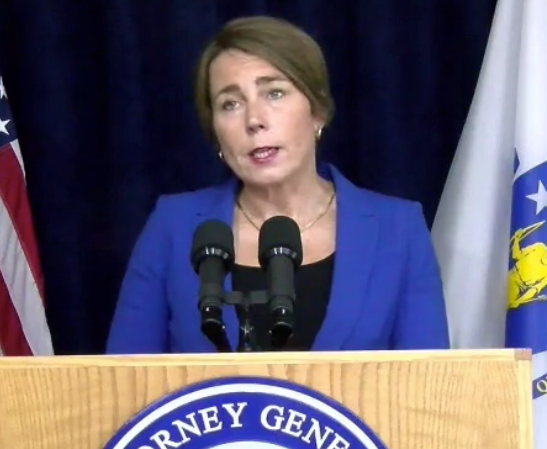
Two leaders of a veterans home where 76 patients died due to the coronavirus were criminally charged Friday morning, according to Massachusetts Attorney General Maura Healey.
Healey said they are believed to be the first criminal in the country filed against nursing home officials in connection with the pandemic.
A grand jury indicted former Holyoke Soldiers’ Home Superintendent Bennett Walsh, 50, and former Medical Director Dr. David Clinton, 71, based on their decision to merge two dementia care units, combining COVID-19 positive residents with others who were asymptomatic. Healey said short staffing factored into some of their decision-making process.
The victims had “risked their lives from the beaches of Normandy, to some the jungles of Vietnam and to know that they died under the most horrific circumstances is truly shocking,” Healey said at a morning press conference.
The accused are charged with causing or permitting serious bodily injury or neglect of an elder, and could face prison time if convicted. An independent government report released three months ago claimed that Walsh was not qualified to operate a long-term care facility and alleged that “substantial errors and failures” led to the deaths.
Common practice has been to isolate residents who have tested or displayed signs of the coronavirus. The consolidation of the two dementia units pushed more than 40 veterans into a space designed for only 25 under normal circumstances, report authors noted.
More than 160 residents and staff members were found to be coronavirus-positive after the original outbreak, officials said. March 17 was the first date a patient tested positive. He was not isolated until test results came back, however, despite showing symptoms of the virus for weeks. He was allowed to mix with three roommates and others in common areas, according to the report, which was written based on an investigation led by a former federal prosecutor hired by Gov. Charles Baker (R).
Representatives for Walsh and Clinton were not immediately available for comment Friday, but an attorney for the former had previously disputed the report, claiming it “contains many baseless accusations that are immaterial to the issues under consideration.” Walsh had “reached out for help when the crisis erupted,” including seeking National Guard assistance, the attorney told the Associated Press in June. The attorney said that many troubles stemmed from not receiving that help. Walsh was placed on administrative leave March 30.
The Massachusetts case has been closely watched by long-term care and legal stakeholders around the country. Experts have predicted that nursing home operators could be in store for a wide onslaught of legal claims, if not always criminal prosecutions, in the months ahead if lawmakers do not grant some kind of liability shields for COVID-related deaths that took place despite best-intended decision-making and actions.
Operators of the Holyoke Soldiers’ Home were hit with a proposed class-action lawsuit in mid-July, seeking more than $175 million in damages. It is based largely on findings of the state’s investigation and subsequent report, which called some of management’s decisions “baffling.”
Plaintiffs named Walsh, Clinton, former Chief Nursing Officer Vanessa Lauziere, former Assistant Director of Nursing Celeste Surreira, and Francisco Urena, the former Massachusetts Secretary of Veterans’ Affairs, who resigned in the wake of the outbreak. The lawsuit claims that Urena knew that Walsh had had “no experience in either healthcare or healthcare administration” before being appointed to the Holyoke post.
The Department of Justice also is conducting an investigation into the Holyoke events.
This is a developing story. Please check back for updates.




